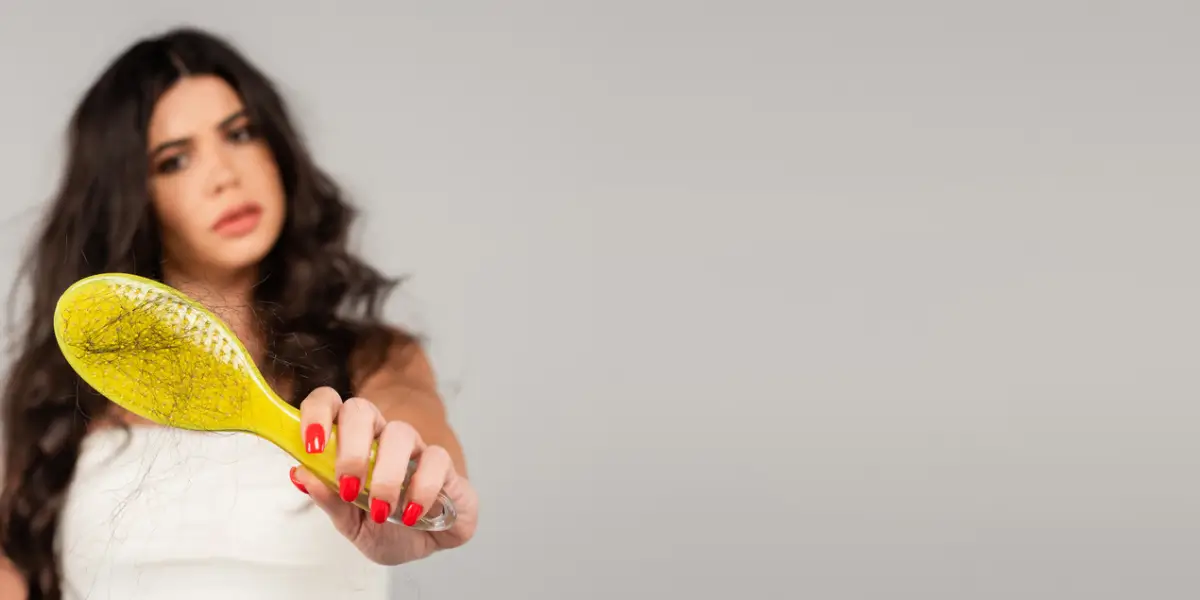
Homeopathy Medicine for Hair Loss and Regrowth: A Natural Solution
Homeopathy Medicine for Hair Loss and Regrowth: A Natural Solution
Hair loss, also known as alopecia, affects millions of people worldwide. Whether caused by genetics, hormonal imbalances, stress, or nutritional deficiencies, hair loss can impact confidence and self-esteem. If you’re looking for a holistic and effective approach, homeopathy medicine for hair loss and regrowth offers a natural and safe solution.
Understanding Hair Loss
How Do I Know I Have Hair Loss?
- Excessive hair shedding while combing or showering.
- Visible thinning on the scalp, especially around the temples or crown.
- Receding hairline or widening hair part, making the scalp more visible.
- Appearance of bald patches that may increase over time.
- Slow hair regrowth or stunted hair growth despite using hair care treatments.
- Increased hair breakage and split ends, making hair appear dull and lifeless.
If you notice these symptoms, it’s important to address the root cause before the condition worsens.
Common Reasons for Hair Fall
1. Genetic Factors
Hereditary hair loss, also known as male or female pattern baldness, is one of the leading causes of hair thinning and baldness. It typically progresses with age and follows a recognizable pattern. While it cannot be completely prevented, early intervention can help slow down the process.
2. Hormonal Imbalances:
Conditions like PCOS, thyroid disorders, and menopause can lead to excessive shedding. Hormonal fluctuations affect the hair growth cycle, leading to premature hair fall and thinning. Imbalanced levels of testosterone and estrogen can significantly impact follicular health.
3. Nutritional Deficiencies:
Lack of essential vitamins like biotin, iron, and zinc can weaken hair roots. Poor diet and imbalanced nutrition can significantly impact hair strength and density. A lack of protein and omega-3 fatty acids can also contribute to dull, weak hair.
4. Stress and Anxiety:
Chronic stress disrupts the hair growth cycle, leading to increased shedding. It can trigger conditions like telogen effluvium, where large amounts of hair enter the shedding phase prematurely. Managing stress through relaxation techniques can help reduce hair loss.
5. Scalp Conditions:
Dandruff, fungal infections, and excessive oil buildup can cause hair fall. An unhealthy scalp can block hair follicles, restricting healthy growth. Regular cleansing and treatment of scalp conditions can aid in hair retention.
6. Overuse of Chemical Hair Products:
Harsh shampoos, dyes, and treatments can weaken hair strands. Frequent use of heat styling tools also damages the hair structure, making it prone to breakage. Opting for natural and mild hair care products is essential for maintaining healthy hair.
7. Medical Treatments:
Chemotherapy, radiation, and certain medications can induce hair loss. These treatments affect rapidly growing cells, including those in hair follicles, leading to temporary or permanent hair loss. Proper scalp care post-treatment can help with regrowth.
Types of Hair Loss
1. Male Pattern Baldness:
Genetic and hormonal factors cause gradual hair loss in men, usually in a specific pattern, such as a receding hairline or thinning at the crown. Early intervention can help slow its progression.
2. Female Pattern Baldness:
Often linked to hormonal changes, resulting in thinning at the crown and widening of the part line, rather than complete bald spots. It usually progresses over time but can be managed effectively.
3. Alopecia Areata:
An autoimmune disorder leading to sudden bald patches. The immune system mistakenly attacks hair follicles, causing rapid hair loss. In some cases, hair may regrow, but treatment is often needed.
4. Telogen Effluvium:
Temporary hair loss triggered by stress, pregnancy, or illness. This condition results in excessive shedding, but hair typically regrows once the triggering factor is addressed.
5. Traction Alopecia:
Hair loss due to excessive pulling from tight hairstyles like braids, ponytails, and hair extensions, leading to weakened follicles and permanent damage over time.
6. Anagen Effluvium:
Rapid hair shedding caused by exposure to toxins or treatments like chemotherapy. It affects the active growth phase of hair and can result in sudden and extensive hair loss.
Hair Loss Management
- Maintain a healthy diet rich in vitamins and minerals essential for hair growth, including proteins, iron, and omega-3 fatty acids.
- Keep the scalp clean to prevent buildup of oil, dirt, and product residue, which can clog follicles and inhibit growth.
- Perform regular scalp massages to stimulate circulation and hair follicle activity, promoting nutrient absorption.
- Reduce stress levels through meditation, exercise, and relaxation techniques, as mental well-being directly impacts hair health.
- Avoid tight hairstyles that cause stress on hair roots, preventing traction alopecia and unnecessary hair breakage.
- Use natural hair oils such as coconut, castor, or argan oil to strengthen hair, lock in moisture, and nourish the scalp.
- Stay hydrated and get sufficient sleep to support overall health and hair growth, as dehydration and sleep deprivation can weaken hair follicles.
Homeopathy Treatment for Hair Loss
Homeopathy is a holistic treatment that addresses the root cause of hair loss rather than just the symptoms. It considers an individual’s overall health, lifestyle, and genetic predisposition before prescribing personalized remedies.
Popular Homeopathic Medicines for Hair Loss and Regrowth
1. Arnica:
Arnica improves blood circulation to the scalp, strengthening hair follicles and reducing hair fall. It is especially effective for hair loss caused by physical trauma, such as tight hairstyles or excessive pulling. Its anti-inflammatory properties also help soothe scalp irritation and prevent dandruff.
2. Thuja Occidentalis:
Thuja helps with hair loss due to hormonal imbalances, such as PCOS or thyroid disorders, by regulating hormone levels. It also treats dandruff, dry scalp, and excessive oil production, promoting healthy hair growth and a balanced scalp environment.
3. Lycopodium Clavatum:
Lycopodium is effective for hair loss from scalp infections, dandruff, and poor digestion that affects nutrient absorption. It strengthens hair roots, reduces premature graying, and helps restore hair volume, especially around the temples and crown.
4. Silicea:
Silicea strengthens brittle, weak hair and reduces breakage, improving elasticity and shine. It enhances the body’s ability to absorb essential minerals, promoting thicker, healthier hair and detoxifying the scalp for better hair growth.
5. Phosphorus:
Fluoricum Acidum is beneficial for excessive hair fall, premature graying, and weak hair roots. It strengthens follicles, improves hair texture, and helps restore natural pigmentation, making hair smoother and shinier over time.
6. Graphites:
Phosphorus is ideal for stress-induced hair fall, calming the nervous system and reducing excessive shedding. It nourishes the scalp, improves circulation, and supports strong, healthy regrowth, especially for those experiencing scalp sensitivity.
Why Choose Homeopathy for Hair Loss?
- Safe and Natural: No harsh chemicals or side effects, making it suitable for long-term use. Homeopathic remedies are gentle and compatible with all age groups.
- Personalized Treatment: Tailored to each individual’s condition, ensuring targeted and effective results. Each remedy is chosen based on a person’s unique symptoms and constitution.
- Addresses Root Causes: Works holistically rather than just masking symptoms, promoting sustainable hair regrowth. It helps balance internal health, leading to overall well-being.
- Long-Term Benefits: Strengthens hair from within and prevents further damage, improving overall hair health and texture. It supports scalp health, reducing future hair fall and boosting new growth.
Final Thoughts
If you’re struggling with hair loss, homeopathy medicine for hair loss and regrowth offers a gentle yet effective way to restore healthy hair. Consulting a homeopathic doctor ensures a personalized approach for long-term results. Take the first step towards naturally healthy and strong hair today!
Published
january 16, 2025
Share this article

The Homeopathy World
Natural Healing Insights
Discover holistic solutions for a healthier you
FAQs
How effective is homeopathy for hair loss?
Homeopathy treats hair loss by addressing its root cause, such as hormonal imbalances, stress, nutritional deficiencies, or scalp conditions. It strengthens hair follicles, promotes regrowth, and prevents further shedding naturally without side effects.
